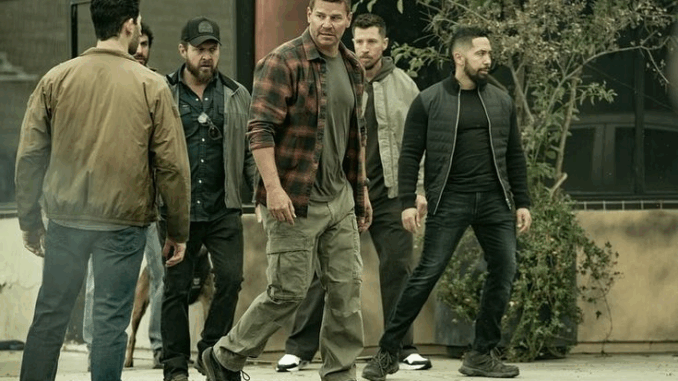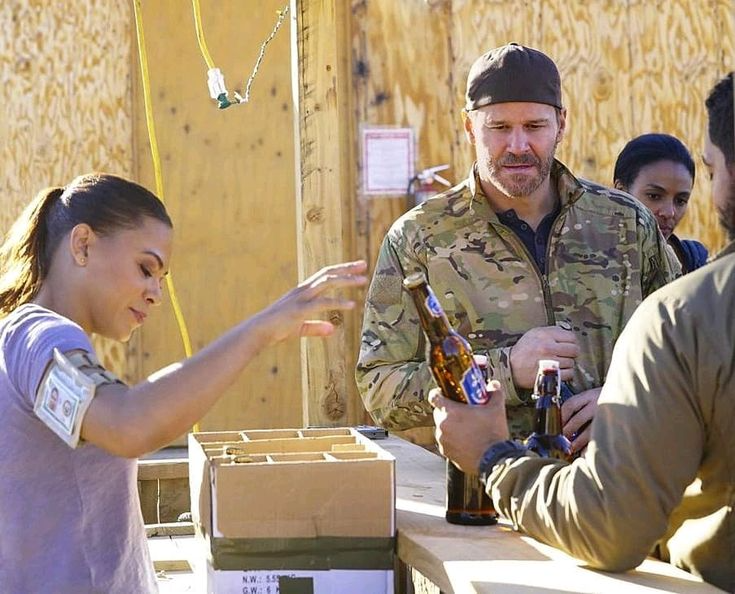
From dramatic action scenes to deep psychological characters, SEAL Team is not only an entertaining series, but also a powerful manifesto about the silent pain of silent warriors. One of the most outstanding features of the film is the way it honestly depicts the impact of PTSD (Post-Traumatic Stress Disorder), traumatic brain injury (TBI) and the terrible mental pressure that soldiers face during and after their missions.
PTSD – The invisible obsession of returning soldiers
PTSD is not just a medical concept, but an indispensable part of the warrior’s luggage. In SEAL Team, especially with the character Jason Hayes (David Boreanaz), PTSD is expressed without exaggeration, without stereotypes, but with a deeply personal meaning.
Obvious signs: Insomnia, night terrors, Uncontrolled emotional outbursts, Feelings of guilt and shame for what he did on the battlefield
Difficulty connecting with loved ones
Jason repeatedly falls into a state of “emotional freeze”, avoiding dialogue and even isolating himself from Bravo Team. The quote “War always has the last word” in the final part of the film is a testament to the psychological weight that lasts long after the war has ended.
Traumatic Brain Injury (TBI) – The Silent Killer
One of the humane and medical storylines in SEAL Team is traumatic brain injury (TBI) – a direct consequence of explosions, impacts or strong shocks during operations. Unlike visible bleeding wounds, TBI is an “invisible” wound but can cause an elite special agent to lose control.
Jason Hayes is a prime example: Shows signs of temporary amnesia, Disrupts tactical judgment, Lack of confidence and fear that he is no longer capable of leading the team
Struggles to distinguish between reality and memory
The film is brave in allowing Jason to admit that he is suffering from a TBI – something that in reality, many real-life special forces often hide for fear of being removed from duty.
Mental Pressure – The War Within the Mind

More than just post-mission trauma, SEAL Team also reflects the psychological pressure from expectations, loss and heavy responsibility. All Bravo members pay a price with their own spirit.
Character examples:
Clay Spenser (Max Thieriot) struggles with the question: “If I am not a SEAL, who am I?”
Ray Perry (Neil Brown Jr.) carries the burden of loyalty, morality and responsibility after the death of his teammates.
Sonny Quinn (AJ Buckley) struggles between duty and personal feelings, leading to many emotional decisions.
This makes the audience understand that the battlefield is not only in Iraq or Syria – but also exists in every thought, every torment and every life-and-death decision of the soldier.
SEAL Team – An “anti-war” film under the guise of action
Although presented as a military action series, SEAL Team is actually a profound indictment of the consequences of war on the human spirit. Viewers not only see eye-catching gunfights, but also witness:
Group psychotherapy in each conversation between teammates
Silent moments, where soldiers face themselves
The fragility of the title “hero” – when having to choose between continuing the mission or saving themselves
Message to viewers and the community
SEAL Team has successfully brought PTSD and TBI to the media, contributing to raising public awareness of the mental health of soldiers.
“If we take care of them while they are still in uniform, they can continue to live a healthy life after taking off that uniform.” – Ray Perry, SEAL Team’s final season.
This is not just a line, but a profound humanitarian statement – something that SEAL Team has conveyed throughout the journey of 7 seasons of the film.
Conclusion: The War Is Not Over, Even When the Guns Have Stopped
SEAL Team does not romanticize war, but exposes its dark side – where psychological pain lasts longer than the bombings. With a humane way of telling the story, the film emphasizes that healing soldiers is a mission no less important than fighting.
Watch SEAL Team not only with the eyes of an action lover, but also with the heart of an empath. Because sometimes, the strongest warriors need healing too.
